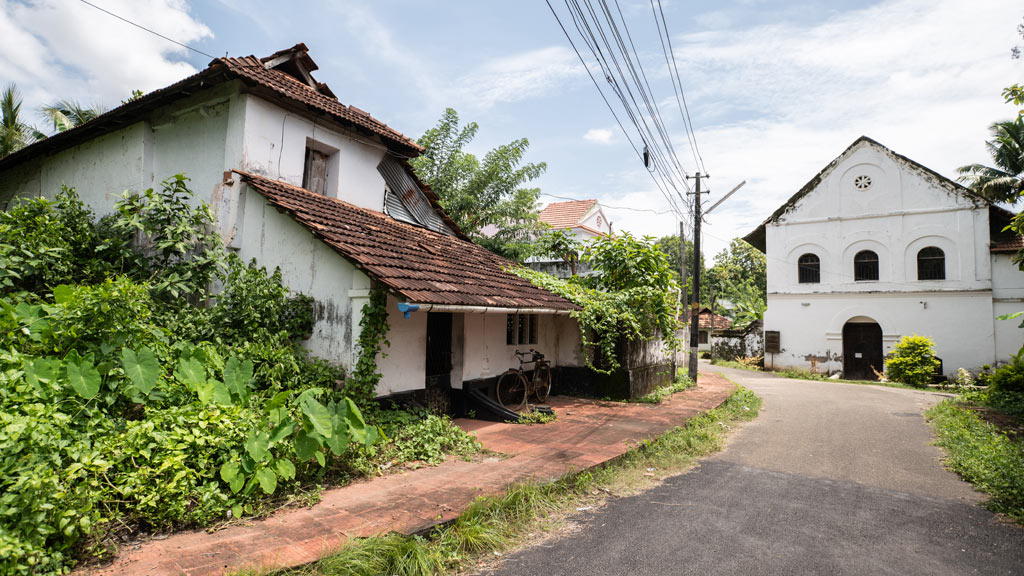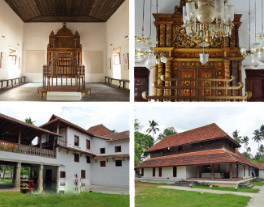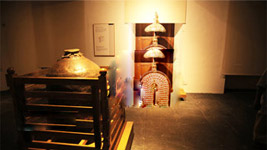Muziris in Mythology and Ancient Literature

Muziris features in the ancient epic of the Mahabharata, though in a very indirect way. The Cheras who ruled the region had their headquarters in Muchiri and Kuroor. It is believed that the ancestor of the Chera king Chenkotuvan named Perunchottuthiyan Cheralathan was so prosperous that he fed the heroic warriors of the Kurukshetra war to their hearts’ content. In Valmiki’s Ramayana, Muziris is referred to as “Murachipattanam”.
From very early times, Kerala had gain renown all around the world as the heart of India’s spice lands, and among the many ports it had, Muziris was considered the best. The true story of the birth, growth, prosperity and eventual decline of the port town of Muziris can only be deduced from extensive excavations in that area. But the significance of contemporary literary works in recreating a profile of the land of those times cannot be totally discounted.
Many ancient Tamil songs make mention of its greatness. One among them carries the line: Muthuneer munthurai Muchiri which translates to “Muchiri is the best of all ports”. Sangam poets like Erukattur Thayankannannar and Paranar also make references to Muziris to which Greek ships, laden with gold, came calling. Muziris features in ancient Tamil literature like Sukasandesham, Unnineelisandesham, Kokasandesham. They are said to carry poetic descriptions of Kodungallur but they are not copious enough to render an accurate picture of the land or its unique features. One finds references only to the commercial power of the place. The land gets mention in the poems of Paranar and Erukattur Thayankannannar too.
In one of his works, Paranar mentions the prosperity of the land like this: “The heaps of grain bought by selling fish are so mountainous in size that they dwarf even houses and rising boats. Houses are filled to overflowing with sacks of pepper. Small boats come ashore, bearing gold and other treasures from the ships. Muchiri echoes with the sounds of thunderous waves, and gives all the riches of the seas and the mountains”.
In Tamil literature, Agam 149, there is a statement that refers to a Pandya King who led a large elephant army and invaded Kodungallur ruled by the Cheras, which indicates that the Pandya kingdom had extended up to river Periyar at that time. The much-quoted ‘Akananuru’ poem 140 mentions that the well-built crafts of the Yavanas or Yona [Greeks, Romans, Fenians, Arabs, etc.] had arrived along the Periyar river. ‘Purananuru’ 57 mentions that a Pandya king laid siege on the port of Musiri/Muziris. ‘Purananuru’ 343 graphically describes the backwater scenes around Musiri/Muziris. Pathirupattu 55.4 mentions the ‘Bantar’ where the ornaments that came through sea were stored.
Many literary references can be found on Chendamangalam, a place that was part of the Muziris region. In the Kokasandesam of Uddanda Sastrigal, the place is referred to as ‘Jayanthamangalam’ which may have been the Sanskrit version of Chendamangalam. The place was noted for its opulence and the temple of Vishnu. A reference to the Vishnu temple can be seen in the Vishnu Vilasa Mahakavya by Ramapanivada who wrote it under the patronage of the Paliath Achan Ramakubera.

